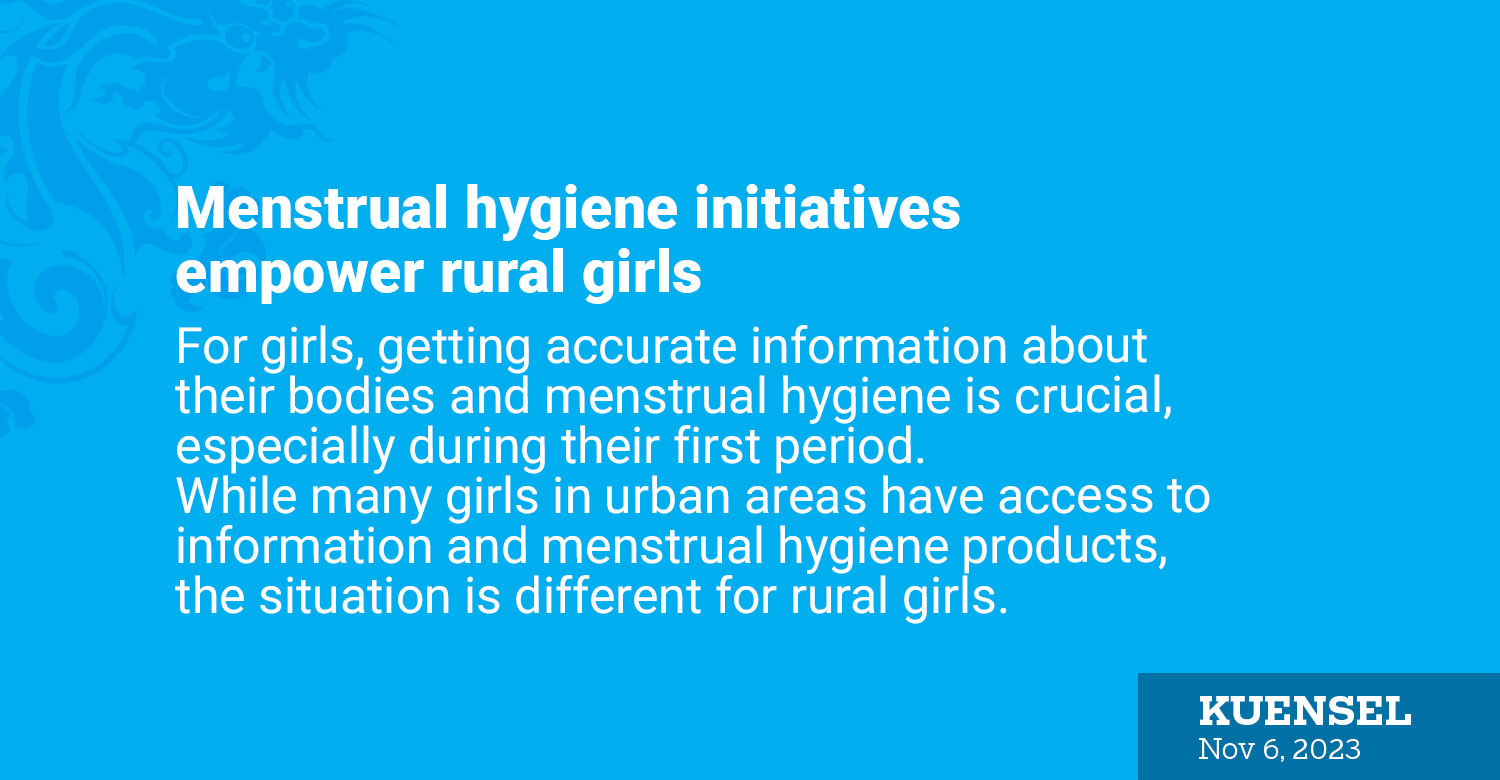Sherab Lhamo
For girls, getting accurate information about their bodies and menstrual hygiene is crucial, especially during their first period.
While many girls in urban areas have access to information and menstrual hygiene products, the situation is different for rural girls.
Karma Yangden, 27, from Lungo in Gasa, remembers how her female teachers played a vital role in educating her about menstruation. They provided her guidance on maintaining personal hygiene and using sanitary pads.
“Though there were no formal programmes on menstruation during our time, our teachers were instrumental in helping us understand and manage menstruation,” she said.
On May 28, Menstrual Hygiene Day, Laya Central School in Gasa conducts educational sessions on menstrual hygiene and health. In 2017, the school initiated awareness programmes, encouraging girls to open up to their teachers and shopkeepers about menstruation-related issues.
“We encourage our students to educate their mothers, cousins, and friends, especially about managing menstrual waste,” a school staff said.
The school’s principal has taken further steps by initiating a donation to purchase and store sanitary pads. Through this initiative, the school ensures that girls have access to affordable pads, especially considering the limited number of shops in Laya.
To provide a more comfortable environment, the school has created separate changing rooms for girls.
In the past, women in Laya did not use cloth or sanitary pads. Instead, they would directly wear pants or a long skirt under their traditional Kira. This practice left them susceptible to staining, which led to negative perceptions about their cleanliness.
With improved road connectivity, sanitary pads has become more accessible and affordable. Today, brands like Stayfree cost around Nu 80.
Used pads are either buried in pits or burned, and the school has established a dedicated facility for disposing of sanitary pads.
Sonam, a resident of Laya, said that access to pads improved after the arrival of road up to Damji. The further extension of the road to Tongchudra has reduced the journey to just five hours, further enhancing access to these essential products in Laya.
The coverage is supported by Department of Tourism


